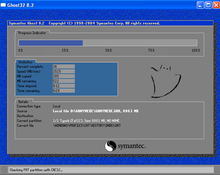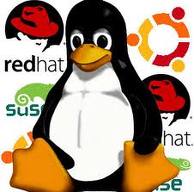Clear And Concise Explanation For Why Software Patents Harm Innovation
Tim Lee points us to an excellent discussion at The Abstract Factory blog for why software patents harm innovation (though, I’d argue that the reasoning set forth applies beyond just software patents). The writer, Cog, initially discusses the sort of story that’s all too common these days, about some friends of his who build a cool online service, with plenty of important details in the execution and the implementation that make it better and significantly more useful than whatever else is out there… only to find themselves sued by a patent holder, whose own technology includes none of the wonderfulness that makes Cog’s friends’ product so powerful. From there, he goes on:
One thing that I find extremely frustrating about many legal scholars and economists’ approach to patents it that they make two false assumptions. The first assumption is that transaction costs are acceptable, or can be made so with some modest reforms. The second assumption is that patent litigation is reasonably “precise”; i.e., if you don’t infringe on something then you’ll be able to build useful technology and bring it to market relatively unhindered. As my friend’s story shows, both of these assumptions are laughably false. I mean, just black-is-white, up-is-down, slavery-is-freedom, we-have-always-been-at-war-with-Eastasia false.The end result is that our patent system encourages “land grab” behavior which could practically serve as the dictionary definition of rent-seeking. The closest analogy is a conquistador planting a flag on a random outcropping of rock at the tip of some peninsula, and then saying “I claim all this land for Spain”, and then the entire Western hemisphere allegedly becomes the property of the Spanish crown. This is a theory of property that’s light-years away from any Lockean notion of mixing your labor with the land or any Smithian notion of promoting economic efficiency. And yet it’s the state of the law for software patents. Your business plan can literally be to build a half-assed implementation of some straightforward idea (or, in the case of Intellectual Ventures, don’t build it at all), file a patent, and subsequently sue the pants off anybody who comes anywhere near the turf you’ve claimed. And if they do come near your turf, regardless of how much of their own sweat and blood they put into their independent invention, the legal system’s going go off under them like a land mine.
It is hard to think of a more effective mechanism for discouraging innovation in software. I mean, I suppose you could plant a plastic explosive rigged to a random number generator under the seats of every software developer, and that would be slightly worse.
The only thing I’d quibble with is the claim that this is the typical economists’ approach to patents. Plenty of very smart economists (including some Nobel Prize winners) agree that the patent system makes no sense. But, other than that, this is quite an accurate description of the problem and the underlying fallacies from those who think the system works. Cog also points out (as we have in the past) that it’s ridiculous to claim that the patent system serves a separate purpose in “disclosing” inventions such that everyone can learn from them:
At any software company with competent legal counsel, developers are instructed in the strongest possible terms never, ever to look at a patent, because the tiniest amount of documented influence could be used as ammunition in a lawsuit. The only time a sane software developer reads a patent is when your company’s lawyers specifically ask you to help them prove you’re not infringing on one. If you ever get wind that there’s a patent even vaguely related to your work, you stick your fingers in your ears and run in the other direction. In short, software patents facilitate “conversation” about as well as poison gas bombs do.
What he’s talking about is the fact that if you’re found to have willfully infringed on a patent, the damages suddenly get tripled. And, showing that you looked at the patent in question is often how patent holders will claim willful infringement. The system is designed such that whatever benefits there may be from “disclosure” have been completely wiped out due to willful infringement damages.
Oh yeah. As for Cog’s friends? They’re basically screwed:
Now, my friend and his partner have consulted multiple IP lawyers and they’ve said, “Yep, the law is probably on your side.” They have also said, “You’re still screwed.” The trial would take forever, the legal fees would be ruinous, and in the meantime nobody will invest in a company which has a litigation cloud hanging over it.
So, none of us ever get to see or use the software that they created. That’s the opposite of what the patent system is supposed to do.




